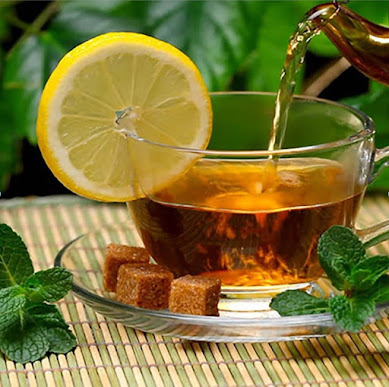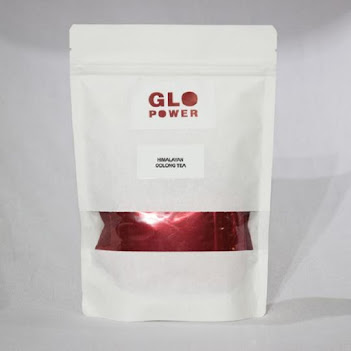True Teas and Functional Teas for Wellness
It’s May’2021, and the United Nations declared 21St May as the Tea International Day. The Darjeeling Tea hills and gardens are ready for picking the First Flush and this month is a celebratory event.
The new slogan is ‘I’ for Illness and ‘We’ for Wellness. Convert the ‘I’ into ‘We’ because it’s all in the “mind”, especially since the Covid 19 pandemic. So be mind-full. A healthy mind promotes a healthy body. By healthy mind here we are talking about both physical and psychological. Physical through your eating habits, exercise and the way we use it. In Ayurveda philosophy, a psychologically healthy mind, means, a mind that is either not stressed, anxious, depressed and is least engaging in greed, jealousy, revengeful and thinks of bringing down another person and much more.
Adaptogens like Turmeric, Ginger, Ashwagandha (Indian ginseng) Reishi mushrooms and CBD are being used for healthy teas to give some relief to stressful lives with overload technology. The consumers are reading food and tea labels diligently, to ensure immunity, zero sugar, low to non-caffeine and nutrition. Senior consumers are slowly adapting to functional herbal teas and mostly interested in healthy aging, memory and brain health to avoid diseases like Alzheimer’s, Parkinson’s and Arthritis.
Drinking green tea has been found to improve brain function in healthy people, said Stefan Borgwardt, chair and director of the department of psychiatry and psychotherapy at the University of Lübeck, Germany. In a 2014 study, he gave green tea extracts equivalent to one or two cups of green tea to 12 healthy volunteers and imaged their brains to analyze changes in connectivity inside certain brain regions. "We noticed an increased connectivity in regions of the brain associated with working memory," he said via email.
And a 2017 review of more than 100 studies he co-authored and found that green tea can impact the brain in three ways: It can influence psychopathological symptoms such as reducing anxiety; cognition by benefiting memory and attention; and brain function, specifically memory.
That review concluded that "it would be desirable" for more Westerners to consume at least 100 milliliters (3.3 fluid ounces) of green tea each day "to protect neurocognitive function." Borgwardt said the benefits are likely not the consequence of a single component but linked to the presence of both caffeine and L-theanine. There are also suggestions that tea could improve the symptoms of depression, dementia and Down syndrome.
CEO of tea company ‘Numi Organic Teas’ says, featuring efficacious plants like Echinacea, elderberry, dandelion root, kanna leaf and burdock root, the line contains potent herbal blends developed to support immunity, combat common cold symptoms, and help users relax during a time when consumers are increasingly seeking out physical and emotional wellbeing. That is the direction they are heading in 2021.
Functional Teas like Chamomile, Lavender, Gotu kola, Gionka biloba, Rosemary and Oolongs are useful in relieving stress and helpful in enhancing cognitive skills and memory.
Rosemary tea. Research studies have shown that Rosemary can help improve brain functionality by boosting long-term memory. Carnosic acid, an antioxidant also present in rosemary, has shown to have promising effects against Alzheimer’s and Parkinson’s disease.
Oolong tea .is another sibling of green, white, black, and yellow teas. It also comes from the Camellia Saneness plant but traces its origins to 500 years ago. Oolong tea contains more caffeine compared to green tea, and that can boost your metabolism more than some other teas. This makes it more stimulating by enhancing cognitive skills and motor skills. Its high caffeine content increases dopamine and norepinephrine release that work together to have a positive effect on mood and brain health.
Ginko Biloba. is often used in Chinese medicine. Besides containing inflammation fighting antioxidants, studies show that it can improve cognitive function
Ayurveda Detox tea ( DIY recipes) by Glo Power Teas
Hibiscus and lemongrass tea
Take a pitcher, and add two three spoons of hibiscus, lemongrass and fennel tea in an infuser and 3 cups of hot water. Let it steep for five- seven minute. Remove the tea infuser and add honey. It's your choice to have it warm or as ice tea. If you desire cold, refrigerate for 3-4 hours.
Turmeric Basil Green tea
Put 3 teaspoons of Turmeric Basil Green Tea leaves in a teapot and add 2 cups of boiled water to it. Keep it aside for five-six minutes. Strain and add fresh lemon juice and honey to taste. Have it warm in the morning or refrigerate to cool, and add ice cubes.
Spiced Wellness Green tea
Put the Wellness Green tea in a tea pot with an infuser. Spiced Wellness green tea contains ingredients like ashwagandha (Indian ginseng) ginger, cinnamon and moringa. Add boiled water to it. Keep it aside for five-six minutes. Strain and add fresh lemon juice and honey to taste. Have it warm in the evening. “Blissful and energetic” says tea reviewer Manya Sharma aka tea_inves_teagator at IG.
Orange and Lemon iced tea
Remove the peel from an orange and lemon. Set it aside. Put orange and lemon peel, cinnamon and star anise, in a bottle. It is optional to add half teaspoon of black or green tea. Pour in a little boiling water and steep. Allow to cool in the refrigerator for about 3-4 hours before removing the straining and serving over ice. Pour in the orange juice and garnish with fresh mint.




Comments
Post a Comment